Escabeche
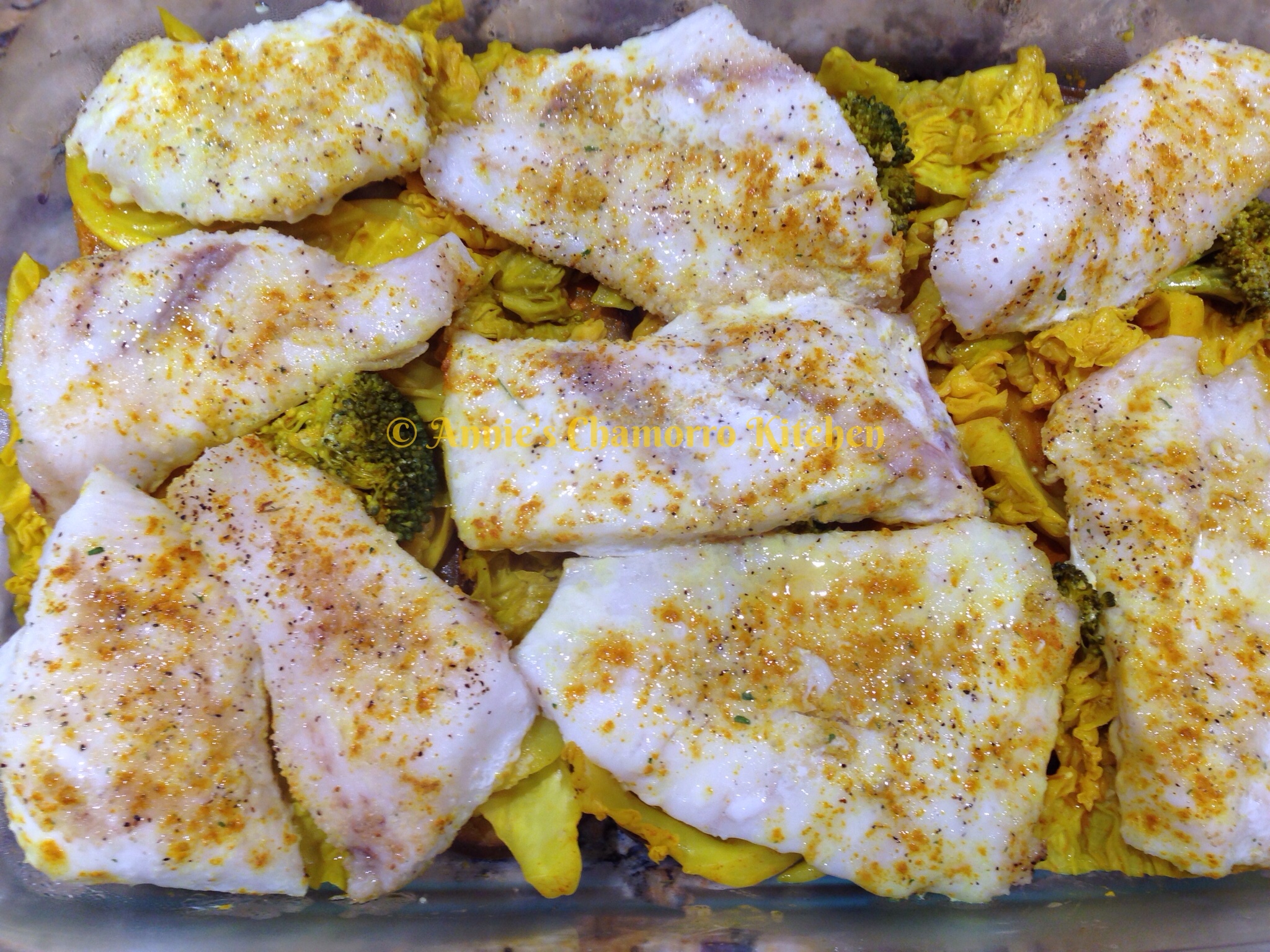
Escabeche is a dish made with fried fish and vegetables with a ginger-vinegar sauce. It’s usually prepared for special occasions, but since we’re in the middle of the Lenten season, this is a great dish to prepare for meatless Friday meals.
The traditional Chamorro version uses tuba vinegar and orange ginger (mango’, in Chamorro). I prefer using fresh ginger for this dish, but I rarely find it in the Asian stores where I live. Ground tumeric makes a great substitute for fresh ginger.
I remember how my mom would go to the back yard and pull up some orange ginger roots. She’d clean and peel the ginger, place the pieces in heavy duty aluminum foil, then she’d pound the heck out of the ginger with a hammer. 😉
I love fried fish, and this dish is usually made with fried fish. I’m trying to eat healthier these days, so I opted to bake instead of fry my fish. Use any good white fish like tilapia, parrot fish, or one of my favorites–orange roughy.
Give my recipe a try. I think you’ll like it. 🙂
Escabeche
Ingredients:
- 1 large broccoli head, cut into little “trees” about 3 inches long
- 1 medium cabbage, cut into large pieces (I like using Chinese cabbage for this dish)
- 1 large eggplant or 4 medium long (Japanese or Chinese) eggplants, sliced lengthwise, 1/4 inch thick
- 3 to 4 cups water
- 1 to 1 1/3 cups white vinegar
- 1 1/2 teaspoons salt (plus more for seasoning the fish)
- 6 to 8 teaspoons tumeric (plus more for seasoning the fish)
- 1 tablespoon chopped garlic
- 3 pounds white fish (tilapia and orange roughy are good for this dish)
- 1 tablespoon garlic powder
- Black pepper, about a teaspoon
- Optional: Other vegetables of your choosing, like sliced onions or leafy greens
Directions:
Place a large skillet or wok over medium high heat. I have a 14″ skillet that I love to use for making fried rice, stir-fried dishes, or making dishes like escabeche. You want a fairly large pot that is wide across the top so that you can somewhat steam the vegetables, not boil them.
Pour 1 cup of water into the pan and bring it to a boil.
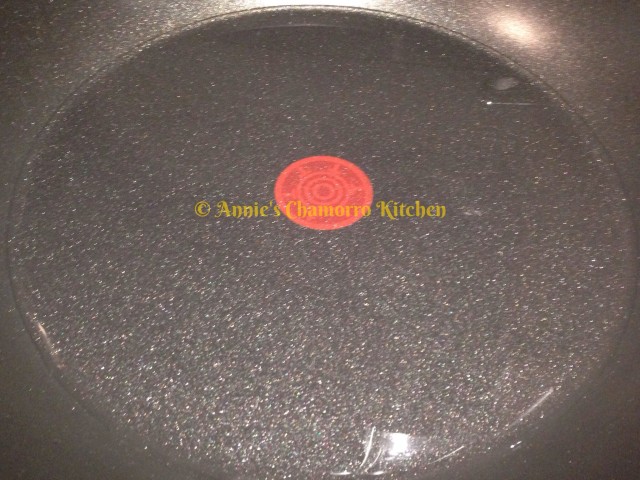
Add 1/2 teaspoon salt to the boiling water.
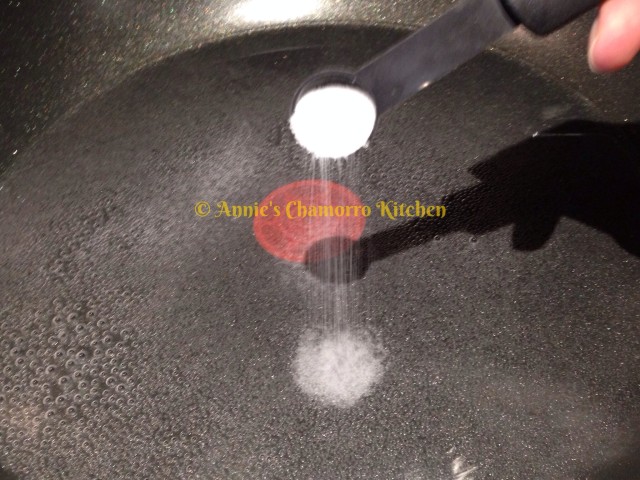
Pour 1/3 cup of vinegar into the pan.
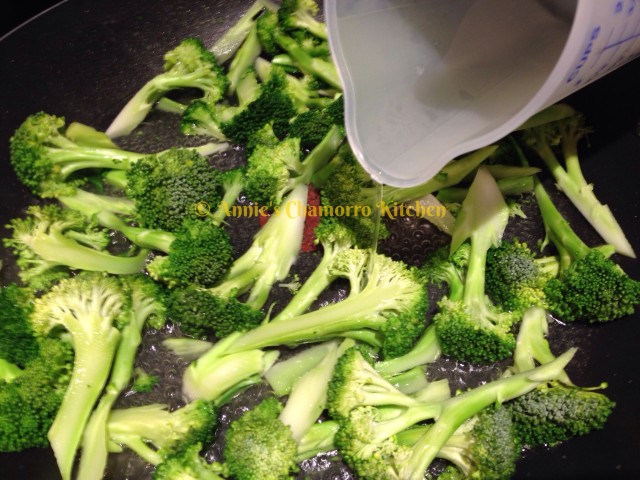
Sprinkle 2 teaspoons of tumeric over the broccoli.
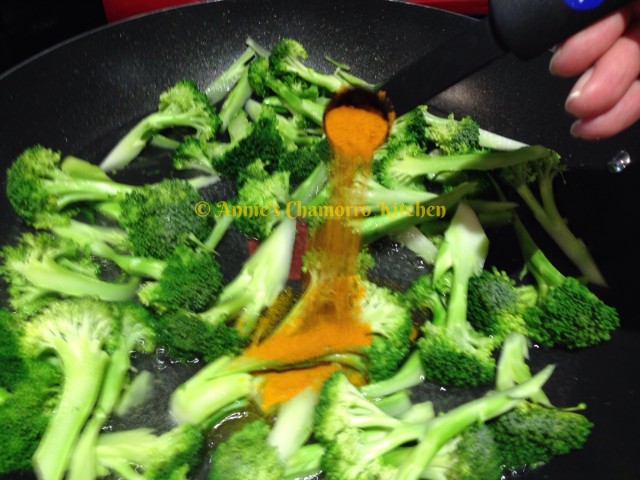
Use a pair of tongs to gently stir the mixture around in the pan, just until the tumeric is mixed into the liquid.
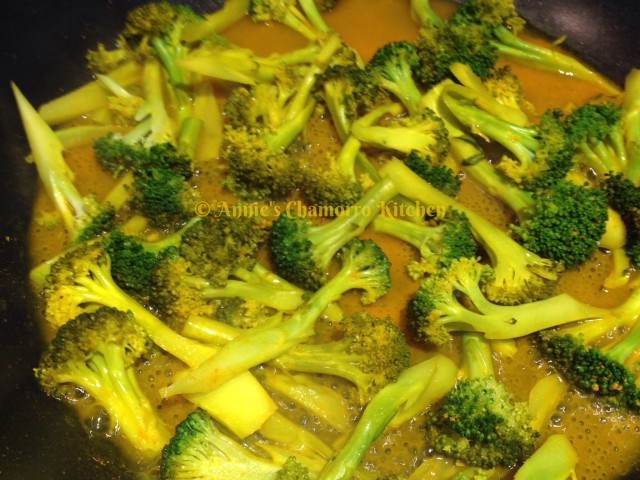
Cook the broccoli just until it is slightly wilted, or cooked to your liking. Place the broccoli into a medium sized mixing bowl, leaving the tumeric sauce in the pan.
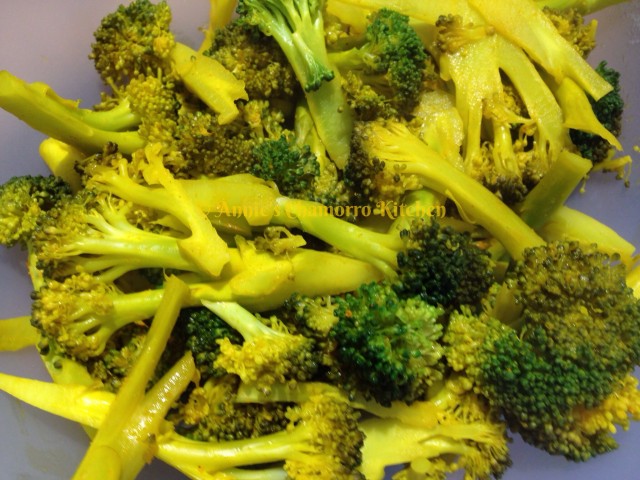
If you don’t have much liquid in the pan, add another cup of water and 1/3 cup of vinegar, 1/2 teaspoon salt and 2 more teaspoons of tumeric. Bring the liquid back up to a boil then add the cabbage leaves.
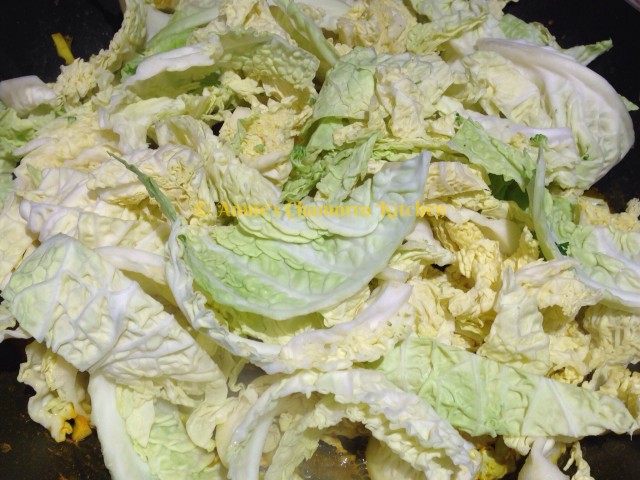
Use the tongs to turn the cabbage, evenly coating each leaf in tumeric sauce. Cook until the leaves begin to wilt.
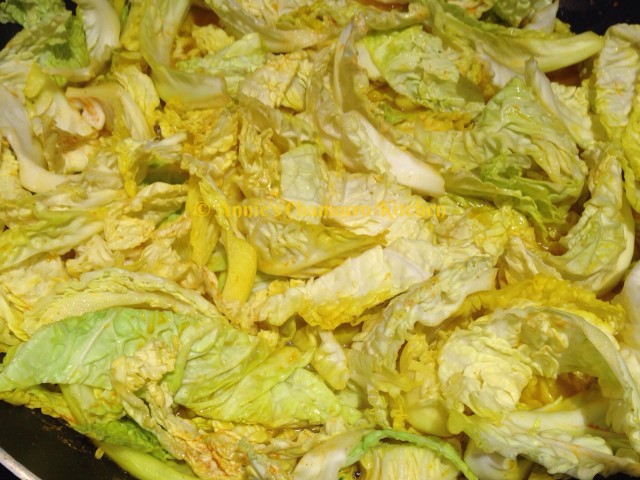
Place the cooked cabbage into the bowl of broccoli, leaving the liquid in the pan once again.
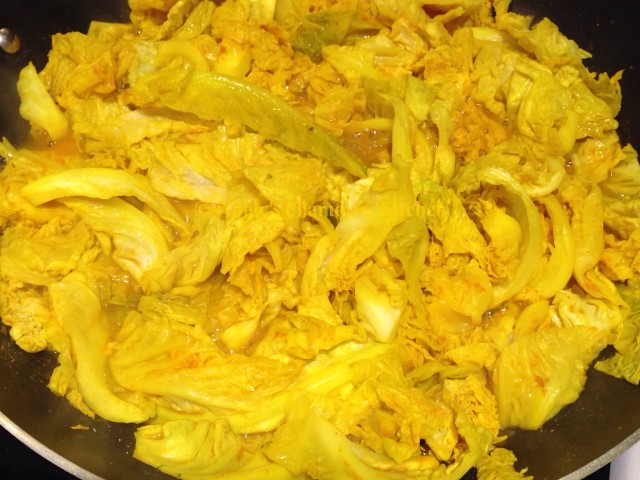
As with the step before, if you don’t have much liquid in the pan, add another cup of water, 1/3 cup vinegar, 1/2 teaspoon salt, and 2 more teaspoons tumeric.
Bring the liquid to a boil then add the sliced eggplant to the pan. Turn the heat down to medium low (the eggplant takes longer to cook and your liquid may dry up completely as the eggplant cooks). Cook the eggplant for about 4 minutes then flip the slices over and cook the other side for another 4 minutes (or cook until the eggplant softens).
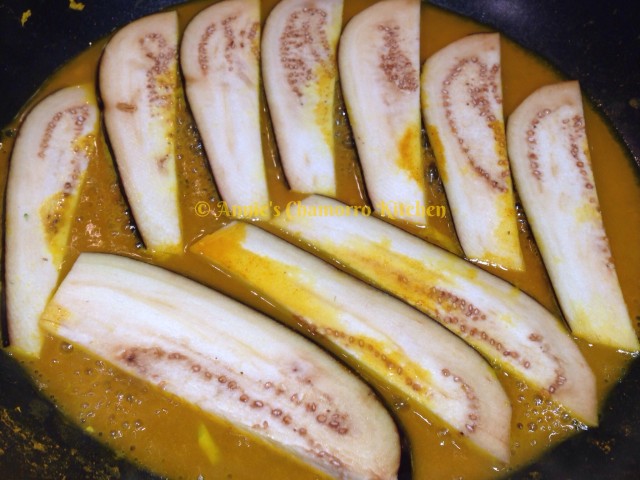
When the eggplant is done, remove it from the pan and place it into the bowl with the other cooked vegetables.
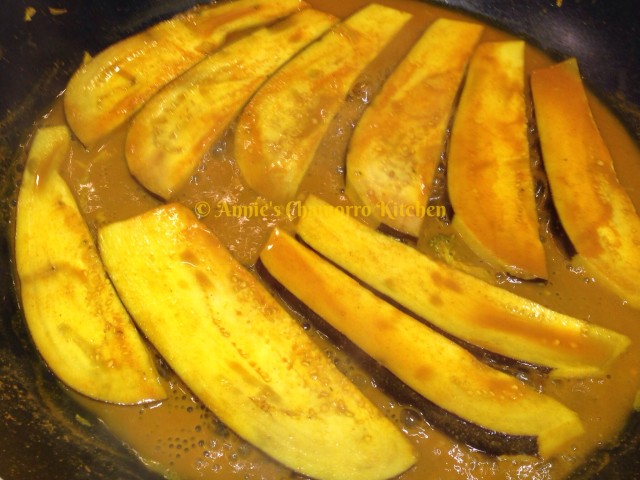
Repeat this process (of cooking the vegetables) for any remaining vegetables you are adding to the dish (like onions or kangkun leaves).
If your liquid dries up, add another cup of water, 1/3 cup vinegar, 1/2 teaspoon salt, and 2 teaspoons tumeric. Add the garlic to the pan. Turn the heat back up to medium high. Cook the garlic sauce for a couple of minutes.
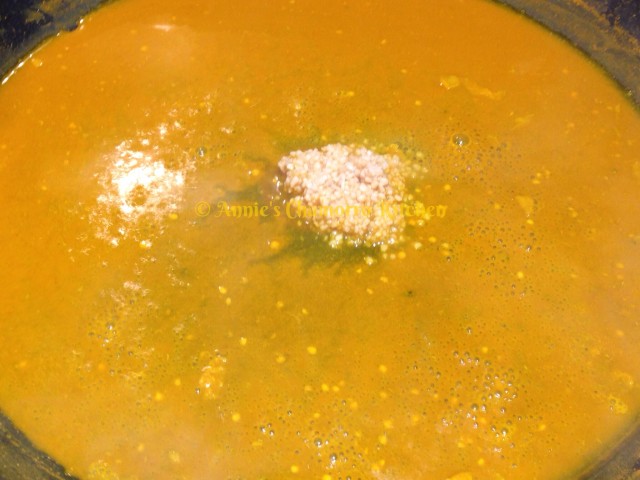
Pour the sauce over the cooked vegetables. Set aside until the fish is done.
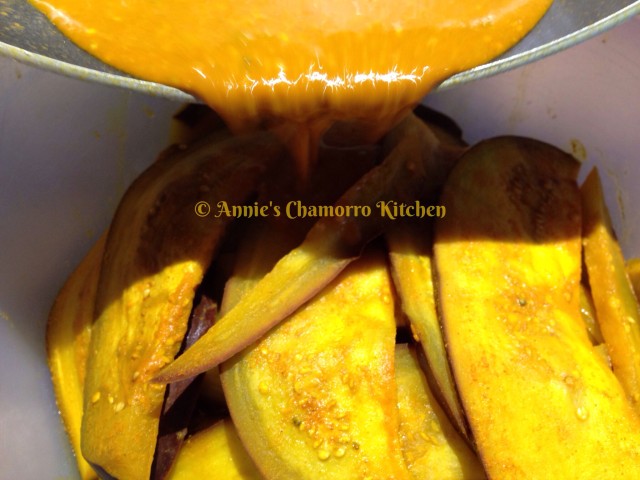
Prepare the fish.
Preheat the oven to 400 degrees. Place the fish filets on a large rimmed baking sheet.
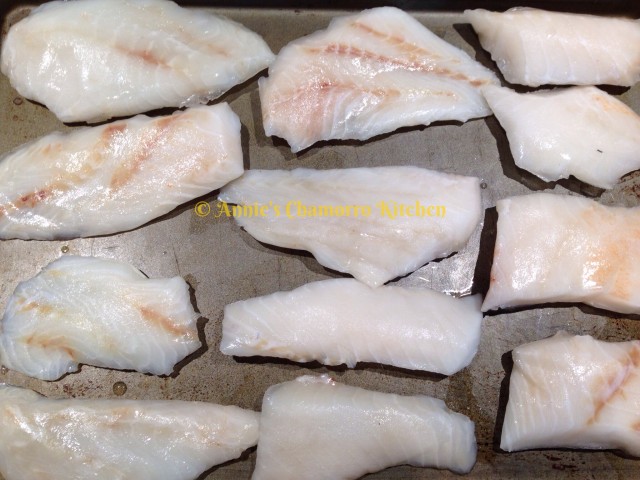
Sprinkle salt, black pepper, garlic powder, and tumeric on both sides of the fish. Bake at 400 degrees for 15-20 minutes. Use a fork to check for doneness (the fish should flake easily with a fork).

When the fish is done, it’s time to layer the escabeche.
In the bottom of a 9×13 pan, place a even layer of eggplant, half of the cabbage leaves and broccoli.
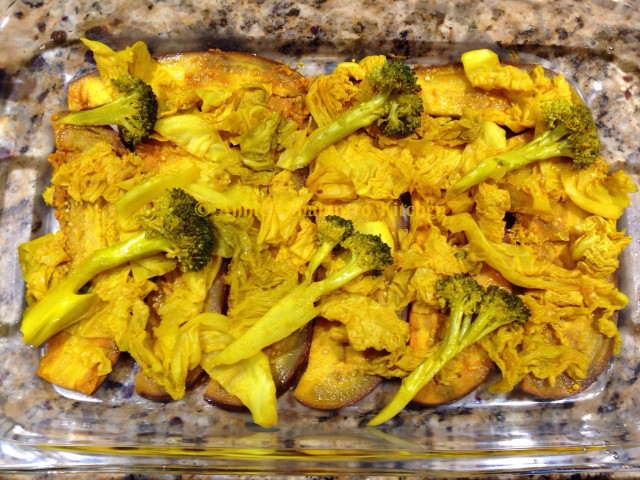
Carefully place each of the baked fish filets on top of the bottom layer of vegetables.
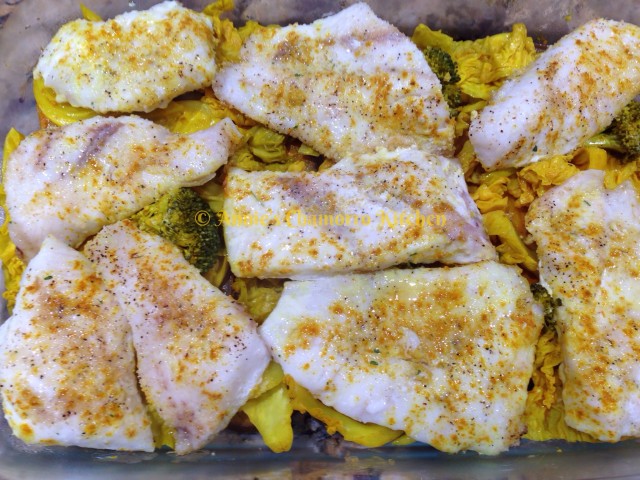
I don’t have a photo of these next steps (I don’t know how I forgot to take photos!), but layer the remaining vegetables on top of the layer of fish.
Pour any remaining sauce over the vegetables.
While you can eat this immediately, this dish is best if made the day before and allowed to “marinate” overnight. Cover the dish tightly with aluminum foil then place in the refrigerator to allow the flavors to meld.
The next day, after all the sauce soaked into the fish and vegetables, the escabeche is now perfect and ready to enjoy. Reheat individual portions, or bake the entire pan (covered with foil) at 350 degrees for about 20-25 minutes.
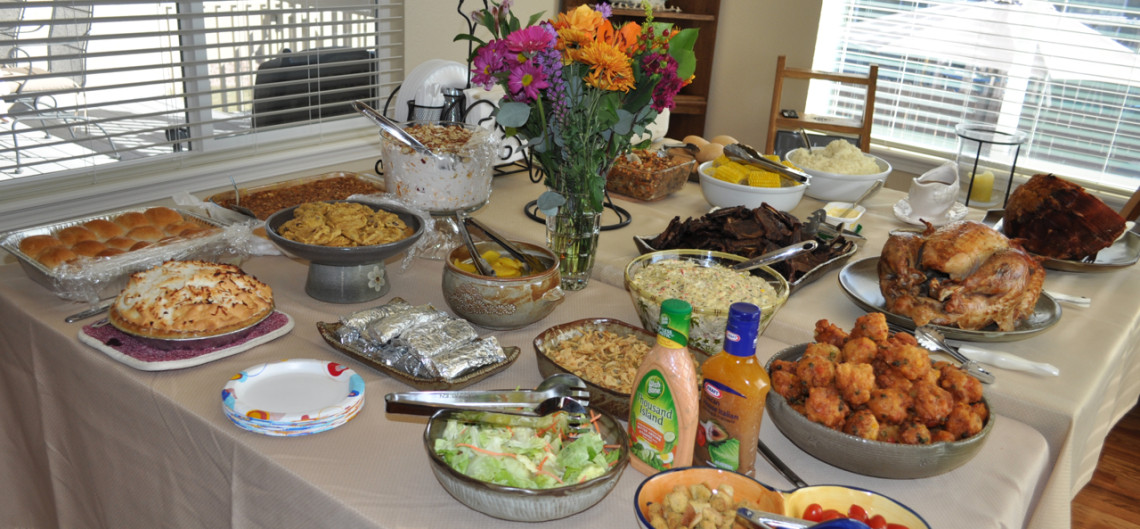
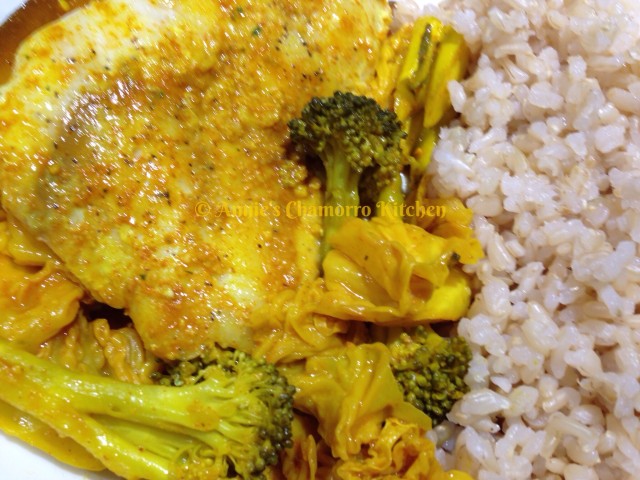
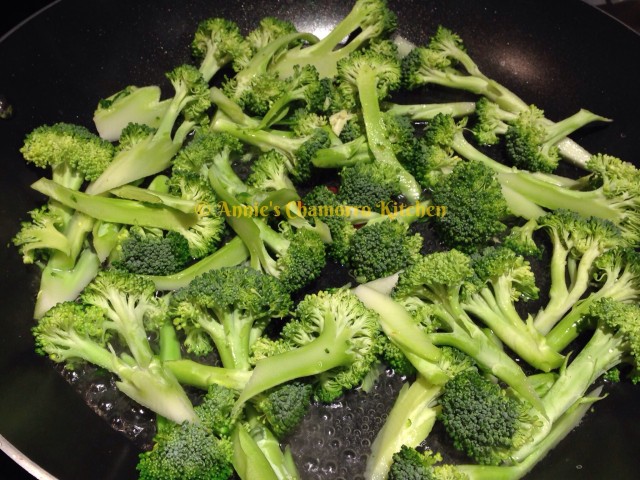

Thank you for sharing